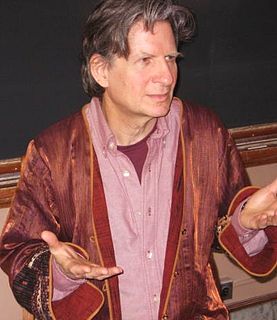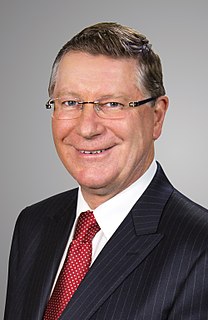A Quote by Paul Romer
After 1960, anyone who wanted to discuss almost any aspect of U.S. public policy - from how to make cars safer to whether to abolish the draft, from how to support the housing market to whether to regulate the financial sector - had to speak economics.
Related Quotes
The first question that I ask : do I have public support or not. That is the first question that I asked as President. If I don't have the public support, whether there's the so-called "Arab spring" - it's not spring, anyway - but whether we have this or we don't, if you don't have public support, you have to quit, you have to leave. If you have public support, in any circumstances you have to stay. That's your mission, you have to help the people, you have to serve the people.
I had to make these decisions after 9/11, make a decision about how to proceed forward with an investigation or how to pull back, whether you use certain actionable intelligence or whether not to. And yet they continue to debate about this bill and in the subcommittee and what - nobody in America cares about that.
Today if you look at most economic textbooks, economics is not defined by subject matter. It's presented as a science of social choice that applies not only to material goods - not only to flat-screen televisions - but to every decision we make, whether it's to get married, or to stay married, whether to have children and how to educate those children, or how to look after our health.
So, what people are actually left with to spend is maybe 25 to 30% of their income on goods and services, after paying taxes and after paying the FIRE sector (Finance, Insurance, Real Estate). Whether it's housing insurance or mortgage insurance. So there's an idea of distracting people. Don't think of your condition. Think of how the overall economy is doing. But don't think of the economy as an overall unit. Think of the stock market as the economy. Think of the rich people as the economy. Look at the yachts that are made. Somebody's living a lot better. Couldn't it be you?
If you go back to Adam Smith, you find the idea that markets and market forces operate as an invisible hand. This is the traditional laissez-faire market idea. But today, when economics is increasingly defined as the science of incentive, it becomes clear that the use of incentives involves quite active intervention, either by an economist or a policy maker, in using financial inducements to motivate behavior. In fact, so much though that we now almost take for granted that incentives are central to the subject of economics.
The Harper Government is committed to ensuring that seniors have the skills they need to make solid financial choices. Seniors today face an increasingly complex financial marketplace, and it will take the combined efforts of public and private sector organizations to help seniors navigate the many financial choices they face. The start of Financial Literacy Month is an excellent opportunity to thank the Canadian Bankers Association and encourage other private sector organizations to take an active role in providing financial literacy support to Canada's seniors.
Draft resisters have had and should continue to have only normal difficulties immigrating [to Canada]. Probably any young American can get in if he is really determined, though all will need adequate information. ... The toughest problem a draft resister faces is not how to immigrate but whether he really wants to. And only you can answer that. For yourself. That's what Nuremberg was all about.
I believe, unlike people that are totally free-market, laissez-faire fundamentalists, that there is an important role that the government can play - one, in providing public goods, whether it's education, health care, or other things, and two, supervising countercyclical policy - stimulus, whether it's monetary, fiscal, or otherwise.
What does it matter how cultivated and up-to-date we are, or how many thousands of books we’ve read? What matters is how we feel, how we see, what we do after reading; whether the street and the clouds and the existence of others mean anything to us; whether reading makes us, physically, more alive.



































